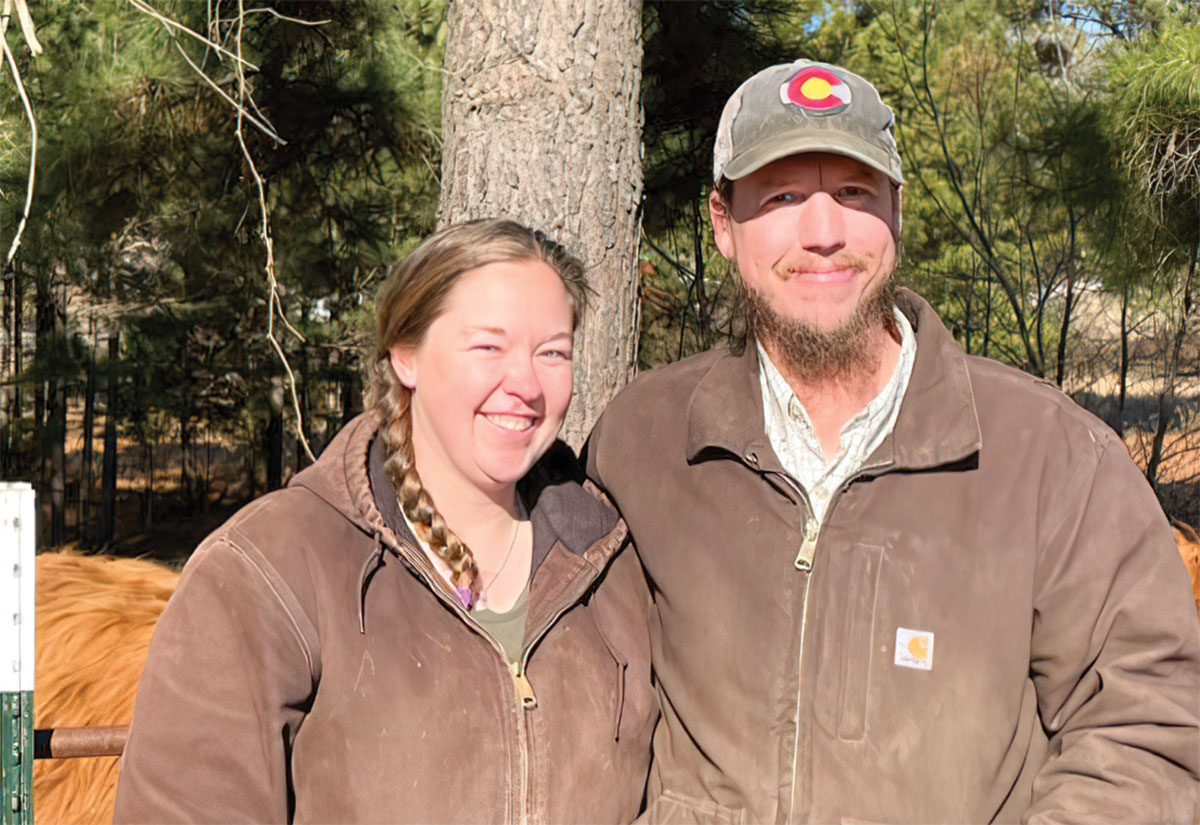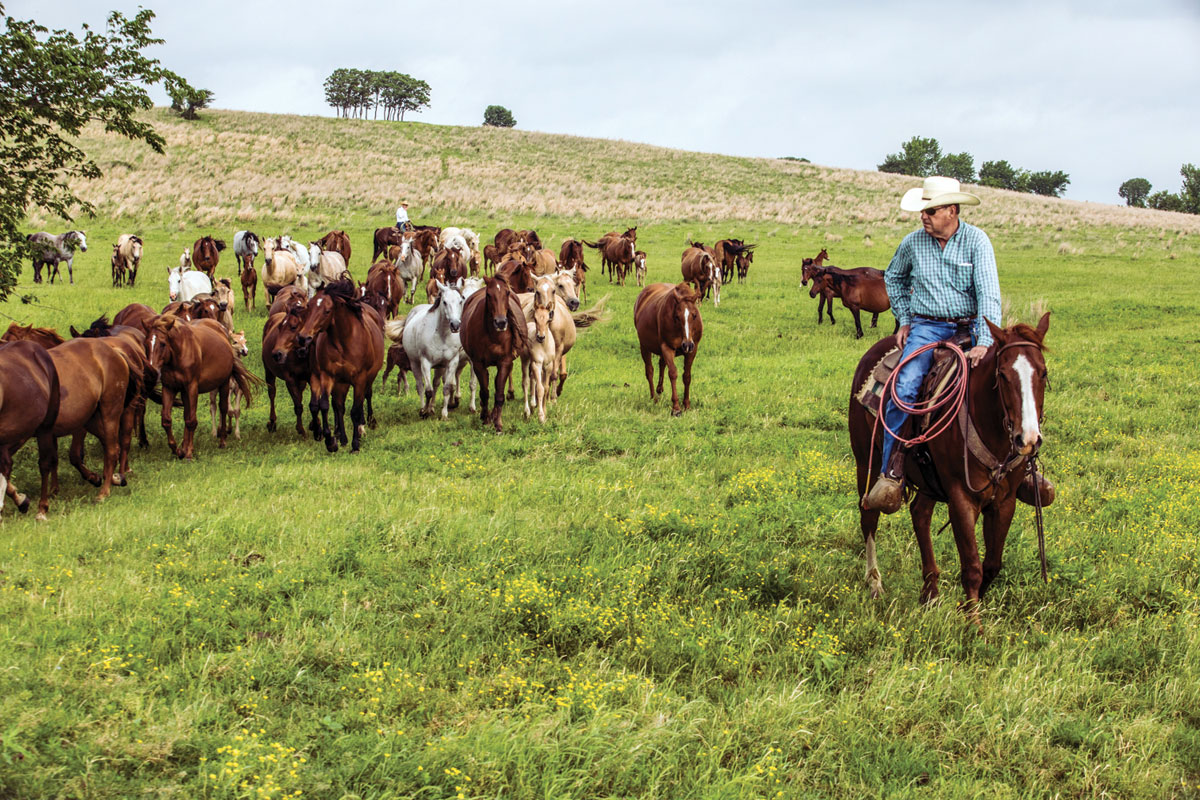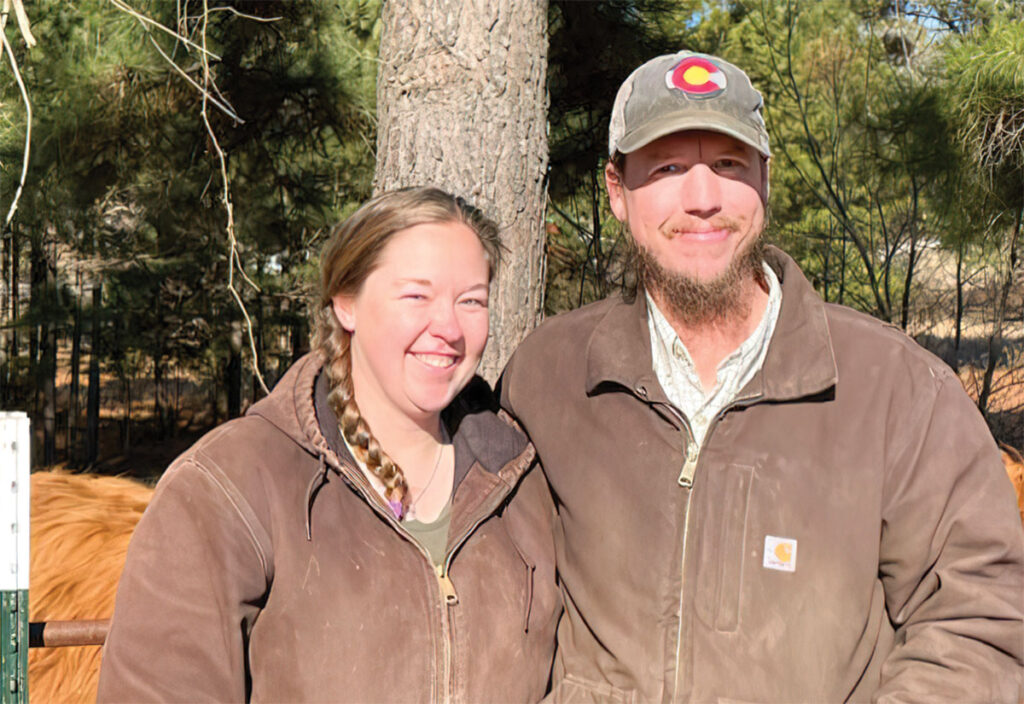
Matthew and Megan Varoz moved to the Ozarks from Colorado
ELKINS, ARKANSAS – When Matthew and Megan Varoz moved to Northwest Arkansas five years ago, they were looking for a lifestyle that was slower-paced and had a lower cost of living than where they were living in their native state of Colorado. They grew up in neighboring towns in southern Colorado and went to school together. After college, they married, moved to northern Colorado, and operated a small produce stand and large piggery of 90 pigs. They both came from farming backgrounds; Matthew grew up on produced alfalfa, grain, cattle and sheep. His parents also owned a plant nursery. Megan grew up on a cattle ranch. They traveled through Arkansas on their honeymoon and liked the area, the climate was more forgiving than Colorado, and it was warmer and had more rainfall on average. They were able to find a farm that was already established and bought it. The farm had been established 35 years earlier as a blueberry farm. The Varozes wanted to continue the operation but have diversified as well.
“We are a chemical-free farm, mostly focused on blueberries, but we also have a small herd of Scottish Highland cattle and Kunekune pigs,” Matthew explained.
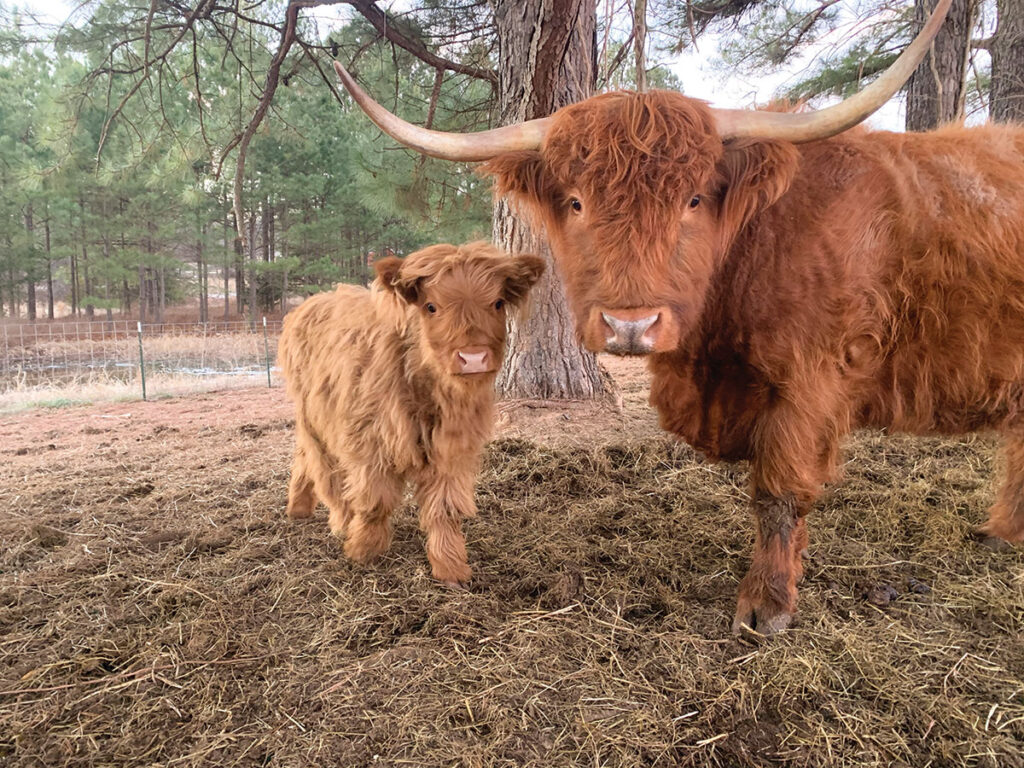
Hatch Farm is 50 acres and about 30 acres of that is pasture, so they were looking for animals that would do well on small acreage, thrive on pasture, as well as wooded areas. One of the most important factors to choosing these breeds were that they were small enough Matthew and Megan could handle them easily. Scottish Highland cattle are docile, hardy, and can adapt to many types of environments. They are considered a forage-type animal and have the capacity to graze less than desirable land and convert what they eat efficiently to high-quality meat with a lot of marbling. Currently, they have five cows and calves that are dual registered with the American Highland and Heartland Highland Cattle Associations. They sell the calves to specialty markets in Kansas and Missouri, and the calves usually go to small hobby, or homesteading farms. The cows were originally natural covered, but due to the death of their herd bull, they will be switching to artificial insemination this year. They also have a Jersey cow and use her milk for making cheese.
“The Kunekune are just a fun, littler pig so they are easy to handle and are good grazers,” Matthew said of the pigs. “It is supposed to be one of the best pork flavor-wise, but most people raise them as pets.”
The Kunekune are similar in size and disposition to potbellied pigs. They are high-fat pork but are slow-growing, and growing them out to butcher takes longer than most pork. They have a smaller liter than commercial pigs, approximately 8-12 per litter. Megan says, “Their gestation period is three months, three weeks and three days, almost to the hour. They are super hardy, covered head to toe with fur, very colorful, some have waddles which is a unique feature and a carryover from the older heritage breeds.”
The Kunekune seem to be adapted well to Northwest Arkansas.
“They enjoy the cool temperatures and do well in the summer. They are easy to keep in the pen,” Matthew said, summing the breed up as “Easy pigs.” Megan said the breed of pigs, “work well as grazers in orchards to control grasses and to clean up dropped fruit.”
However, they are not currently using them in their production blueberries due to the proximity to the berries, and the restrictions of food safety laws.
“Probably the biggest disadvantage is they are so cute nobody wants to eat them,” Mathew said.
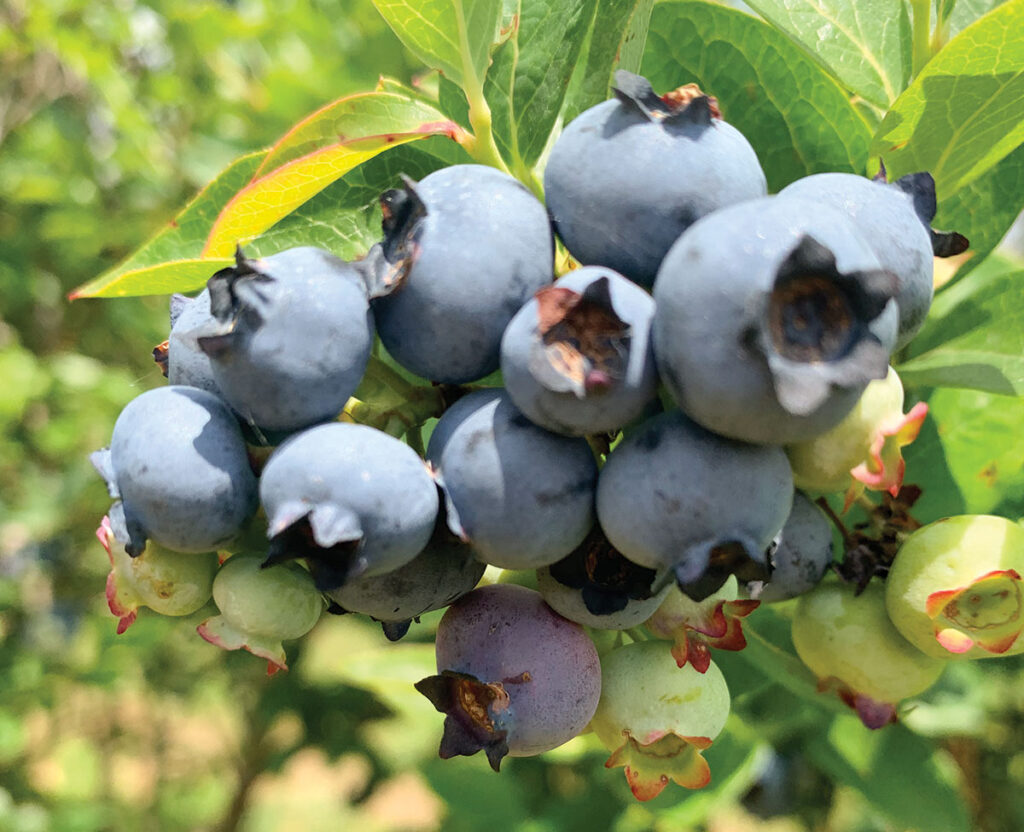
The farm produces 17 acres of blueberries. They originally only planned to sell at farmers markets in Arkansas, but then COVID came along and shut down most of the farmers markets they were working with. In the spring of 2020, they decided to add a drive-thru option to sell produce with little to no contact. It is the largest portion of their sales; they provide products to other producers in the area as needed, and they use outside vendors like Ozark Natural Foods, in Fayetteville, Ark., which is a natural food cooperative. They plan to incorporate other crops into their operation this year, adding watermelons, cantaloupe, and honey dew melons. They intend to grow Hatch green chilies to roast and sell at farmers markets, and this fall, they will open a pumpkin patch.
Hatch Farm is Certified Naturally Grown (CNG).
“We are a no-spray farm. We do not spray anything, for the produce, the animals or hay. No chemicals whatsoever.”
The nutrient program they follow for their blueberries consists of heavy mulching, and they plan to start introducing micro-organisms that will aid in the breakdown of the mulch, which produce the nutrients needed to grow and finish the crop.
Pests are handpicked from the bush, and they also use beneficial insects, such as ladybugs as biological control agents.
As a CNG operation, they have found that some cultural information available to them seems to be lacking; researchers and conventional growers are unaware of the struggles they face trying to grow a crop in a historically conventional agriculture environment. They actively seek new, inventive ways to manage their crops on a no-spray CNG farm. Matthew and Megan are progressive in their approach. They are looking at more innovative practices that will provide a greater level of sustainability. They have invested in some of the newest worldwide technology from Italy, Australia, and Norway.
They stressed the importance being of being aware and knowing where your food comes from and knowing your growers.

